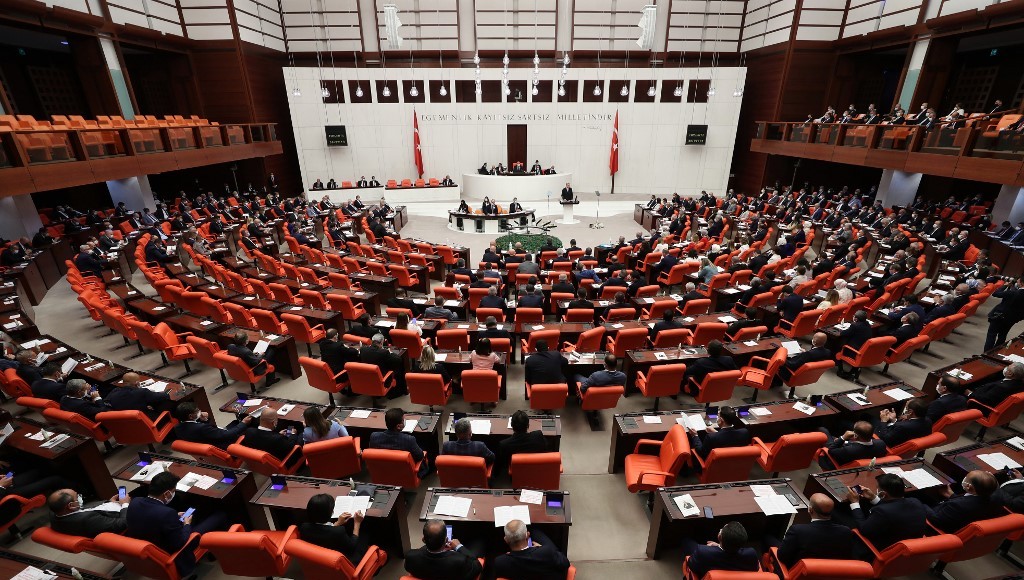A coalition of environmental groups has launched a campaign against a climate bill recently introduced by Turkey’s ruling Justice and Development Party (AKP), criticizing it for commercializing environmental impact rather than preventing it, the Evrensel news website reported on Tuesday.
The bill, submitted to the Turkish parliament last month, proposes the creation of a carbon market board and an emissions trading system (ETS) under the climate change department of the Environment Ministry. It is part of Turkey’s commitment to achieving net-zero emissions by 2053.
On February 24 the bill was presented to members of the parliamentary Environment Committee, which convened two days later. Despite objections from opposition lawmakers and some civil society representatives, the committee approved the bill the same day, with a full parliamentary vote expected soon.
However, critics argue that the proposal — drafted jointly with the World Bank, foreign and domestic consultancy firms and Turkey’s Environment Ministry — excluded environmental groups and the public while prioritizing corporate interests over environmental and social justice.
Environmental activists say the AKP-backed bill treats air, land and water as commodities, benefiting large corporations rather than addressing the urgent climate crisis. They ask lawmakers to reject the proposal in favor of legislation that prioritizes both people and nature.
During the committee stage, the main opposition Republican People’s Party (CHP), the nationalist İYİ (Good) Party and the pro-Kurdish Peoples’ Equality and Democracy Party (DEM Party) submitted dissenting opinions. The CHP argued that the proposal does little to combat climate change and instead focuses on creating a commercial emissions system. DEM Party lawmakers called it an act of “ecocide.”
The Climate Justice Coalition, which includes 80 organizations such as the Chamber of Environmental Engineers and the Chamber of City Planners, criticized the bill for allowing corporations to “buy their way out of pollution” and legitimizing environmental destruction. The coalition urged the ruling party to draft a “fair and real climate law” in collaboration with civil society.
The coalition also said the bill lacks a clear timeline for phasing out coal and other fossil fuels as well as concrete measures to end fossil fuel subsidies and halt new projects. It called for science-based targets, strict regulations to curb environmental and health hazards and binding penalties for climate-related offenses.
Meanwhile, the Ecology Union, an umbrella group of 73 environmental organizations, held an online meeting to draft an alternative proposal called the “People’s Climate Law.” The proposal, which has been opened for public endorsement, has gathered signatures from 113 organizations and more than 5,000 individuals.
Activists are demanding that parliament withdraw the current bill and replace it with a transparent, participatory process that includes the perspectives of scientists, environmentalists and civil society groups. They argue that true climate legislation should prioritize ecological and social well-being rather than profit-driven carbon markets.
The fundamental principles outlined in the “People’s Climate Law” include prioritizing nature and society over corporate interests, a clear roadmap for phasing out coal and fossil fuels, a just transition plan for workers, a climate justice framework, gender equality in climate policies, safeguarding public health, large-scale ecosystem planning, climate adaptation policies, public participation and government accountability and strict oversight and penalties for climate-related offenses.
Transparency International Turkey noted in a post on X that the draft climate law refers to economic elements, frequently referencing terms such as “capital,” “green growth” and “emissions trading,” while making fewer mentions of “nature” and “ecology.” The organization also says the draft lacks clear targets for phasing out fossil fuels and includes “carbon offsetting” practices that could undermine emission reduction obligations.
Türkiye'nin ilk İklim Kanunu Teklifi hakkında öne çıkan noktaları inceleyelim. pic.twitter.com/kNarfRIDlR
— Transparency International Türkiye (@TransparencyTR) March 4, 2025
While the proposed law aims to reduce greenhouse gas emissions, coordinate climate policies at national and local levels, regulate carbon pricing mechanisms and promote green technologies, Transparency International said a greater focus on climate justice and environmental health could improve its inclusiveness.
According to the bill companies operating under the ETS, where greenhouse gas emission allowances are bought and sold, will be required to obtain a greenhouse gas emission permit to carry out activities that cause emissions.
The allowances will be classified as capital market instruments, allowing the climate change department to generate income, which can be used to support climate-friendly investments.
The carbon market board will oversee carbon pricing instruments, determine the distribution of allowances and make policy decisions related to the ETS.



